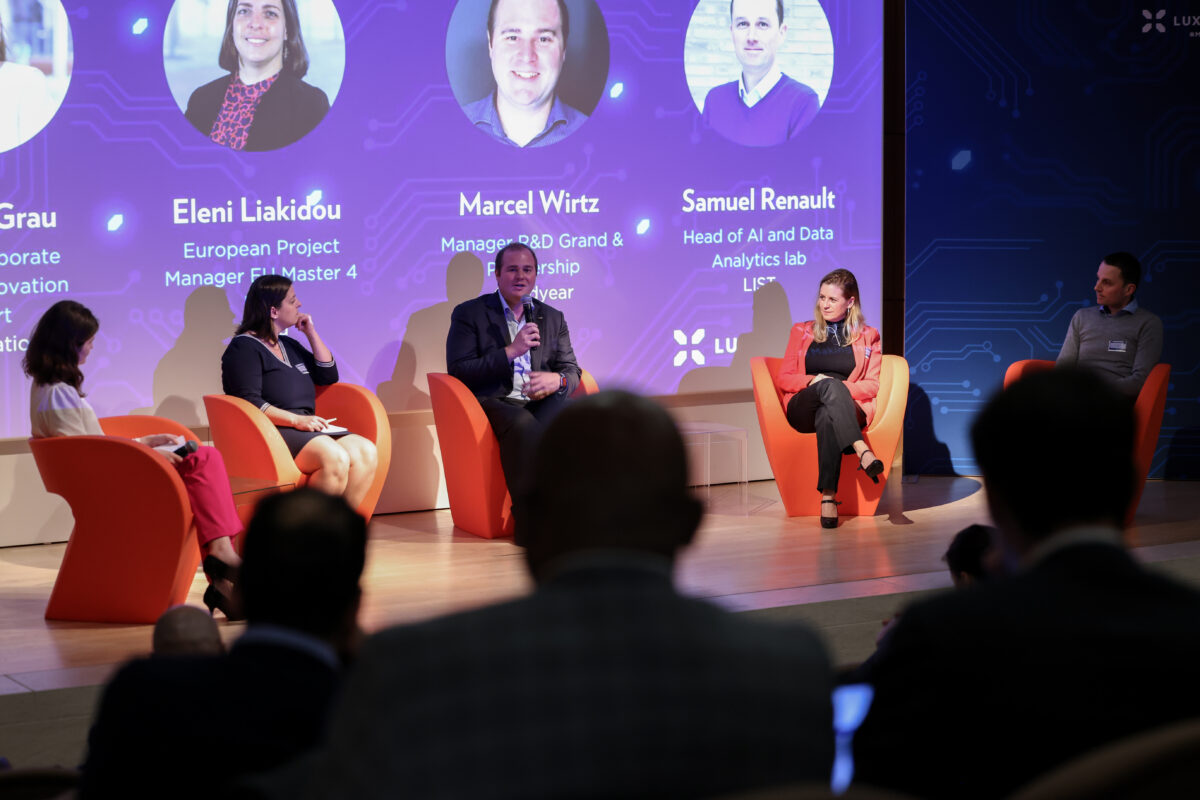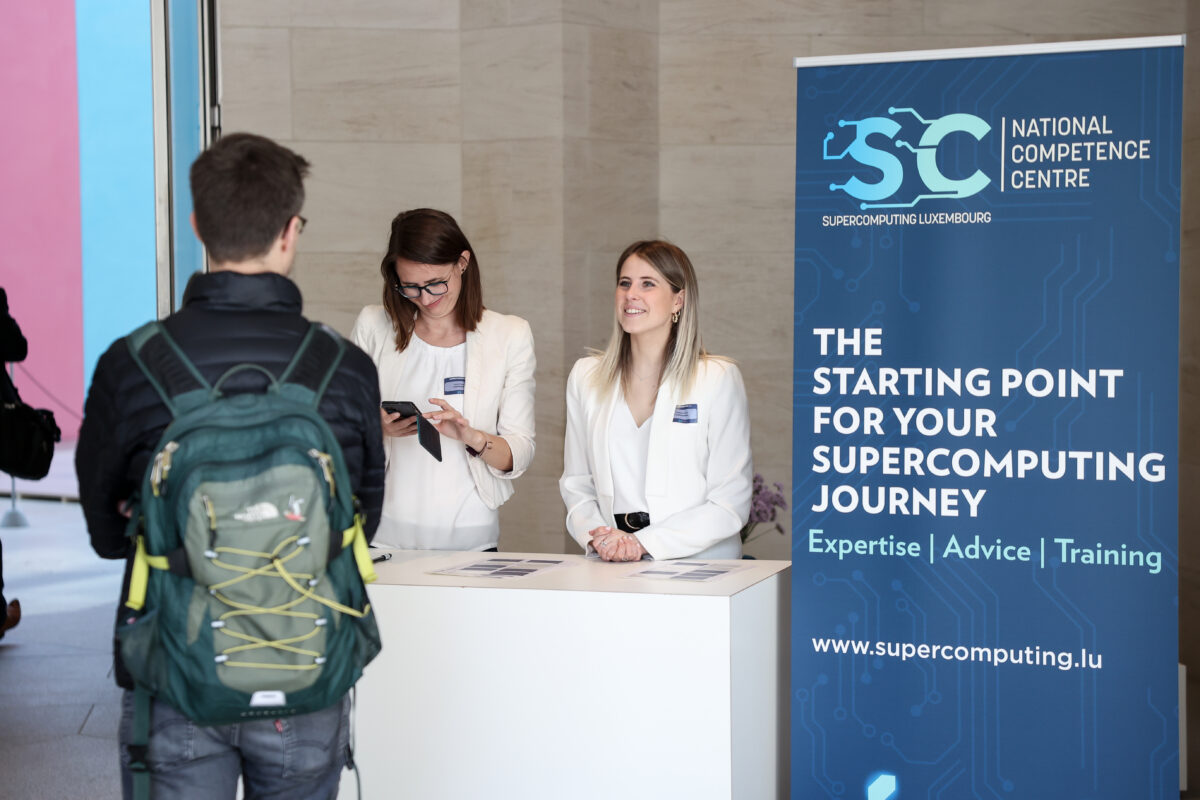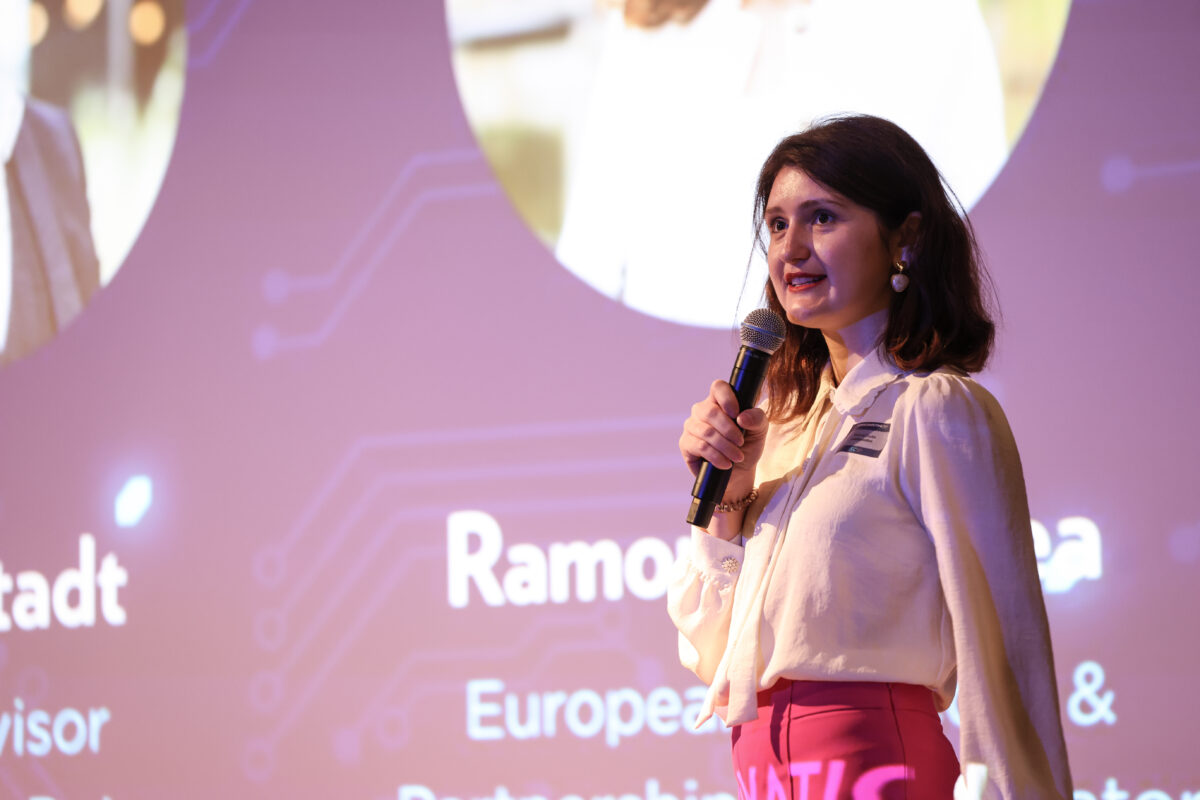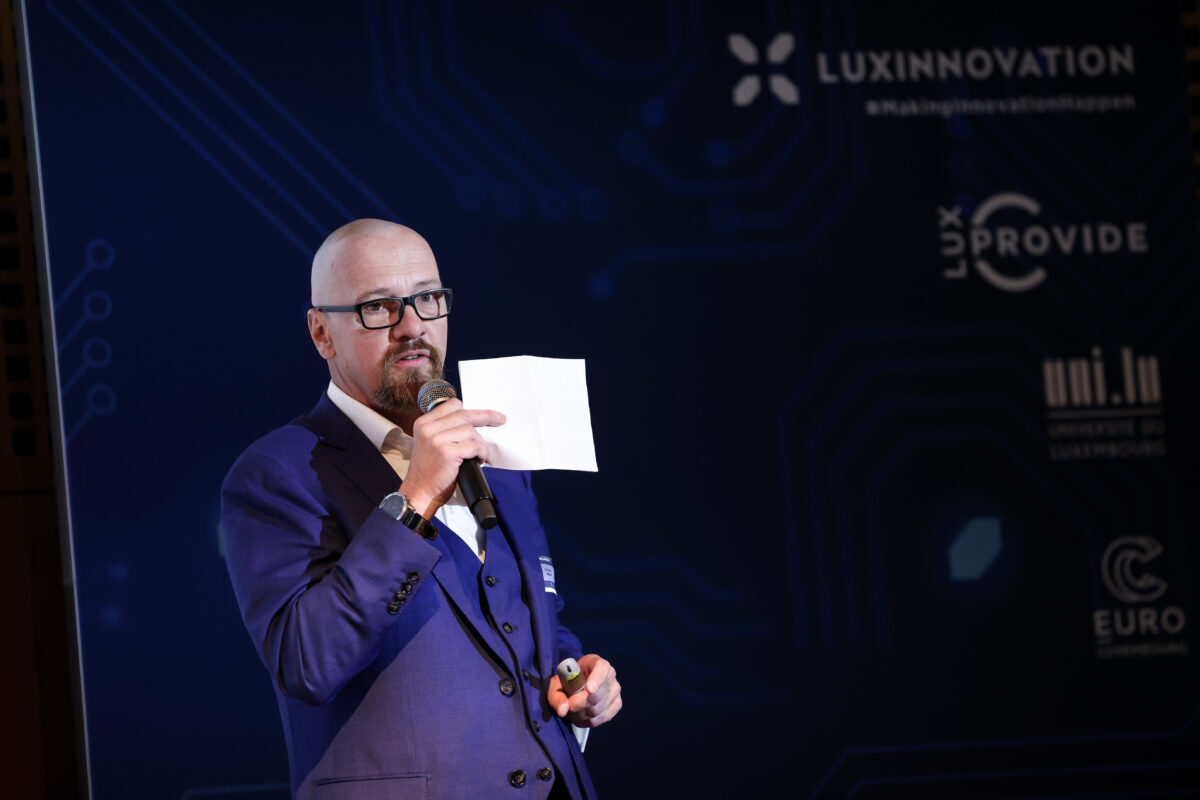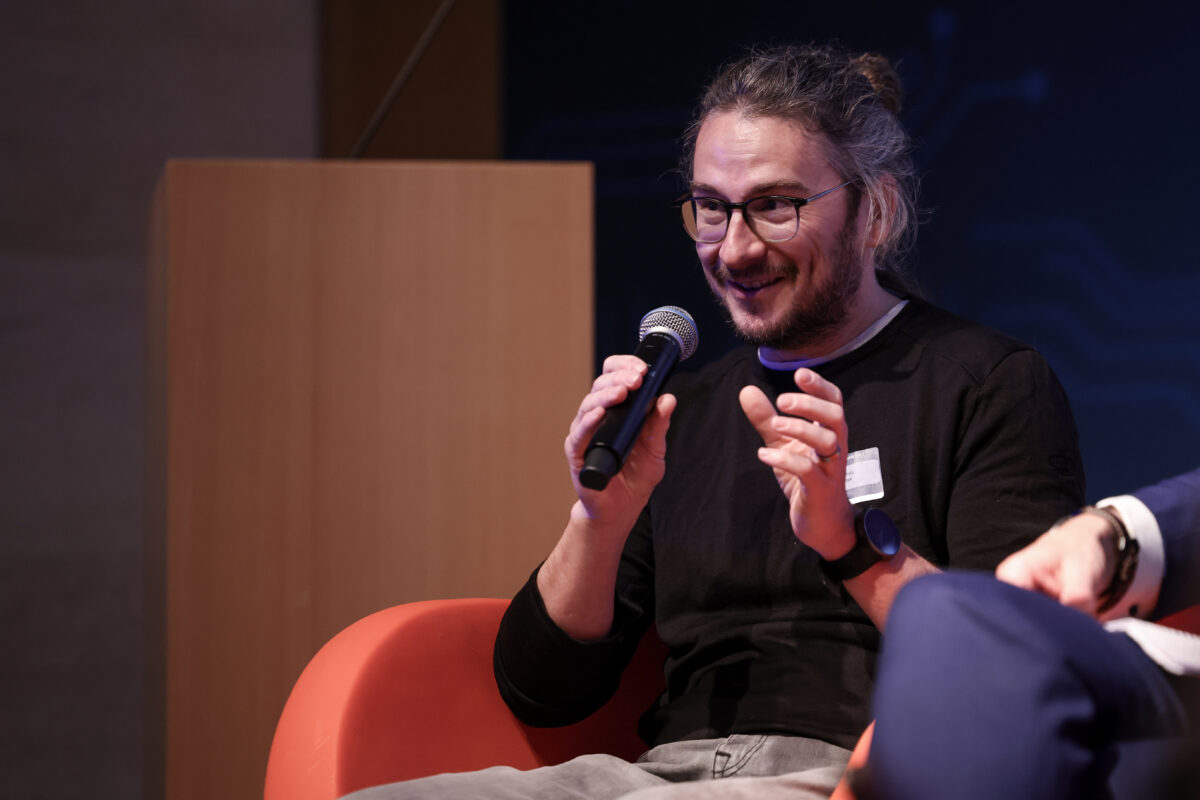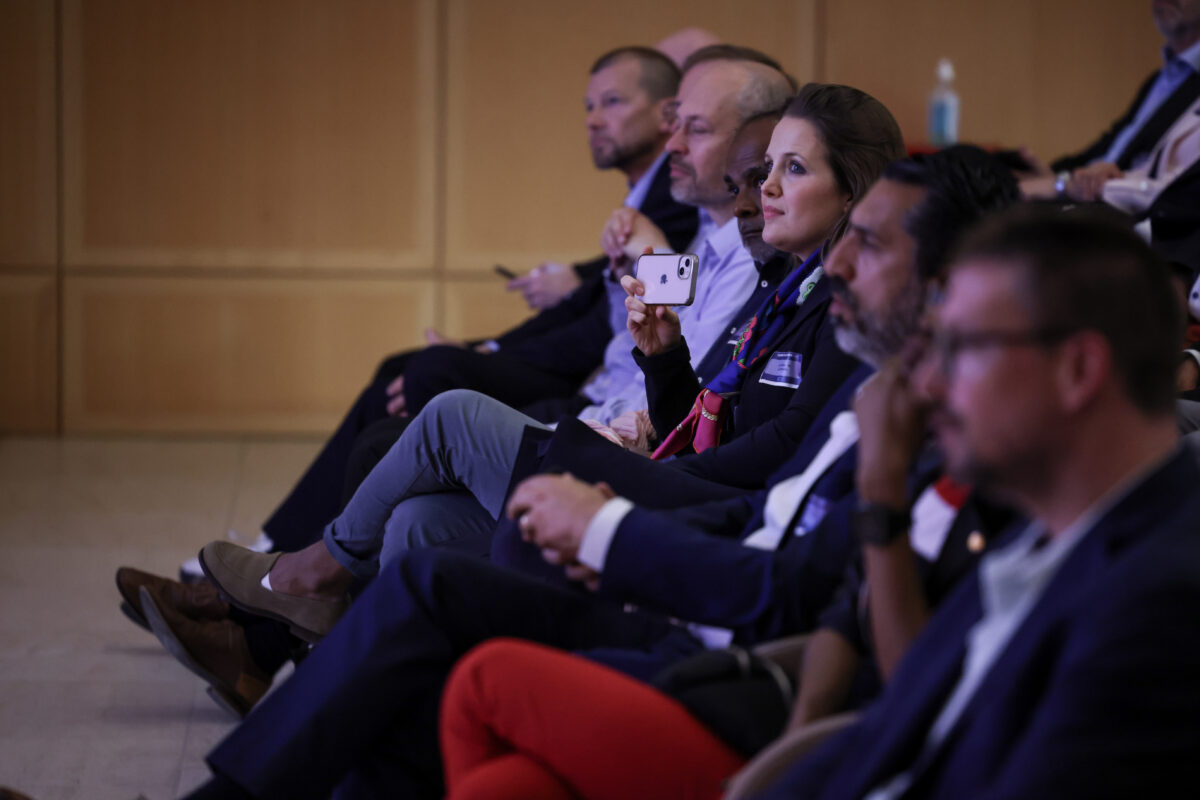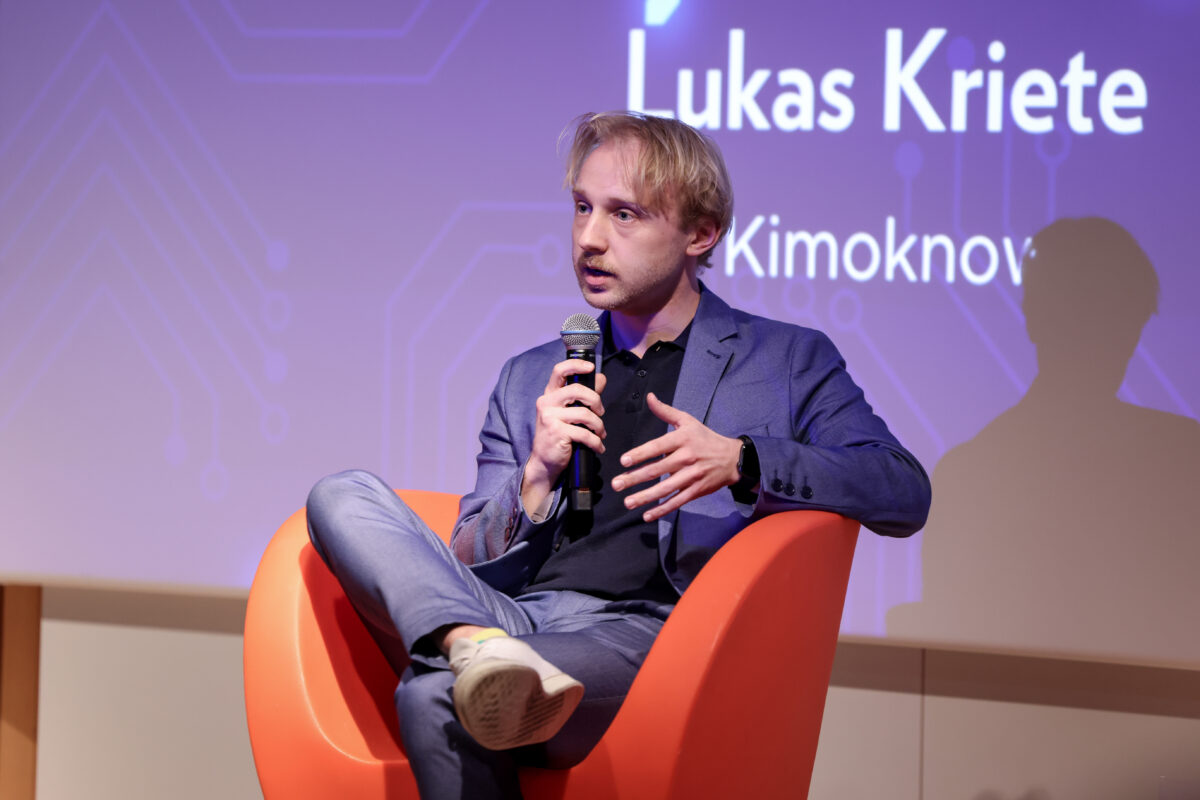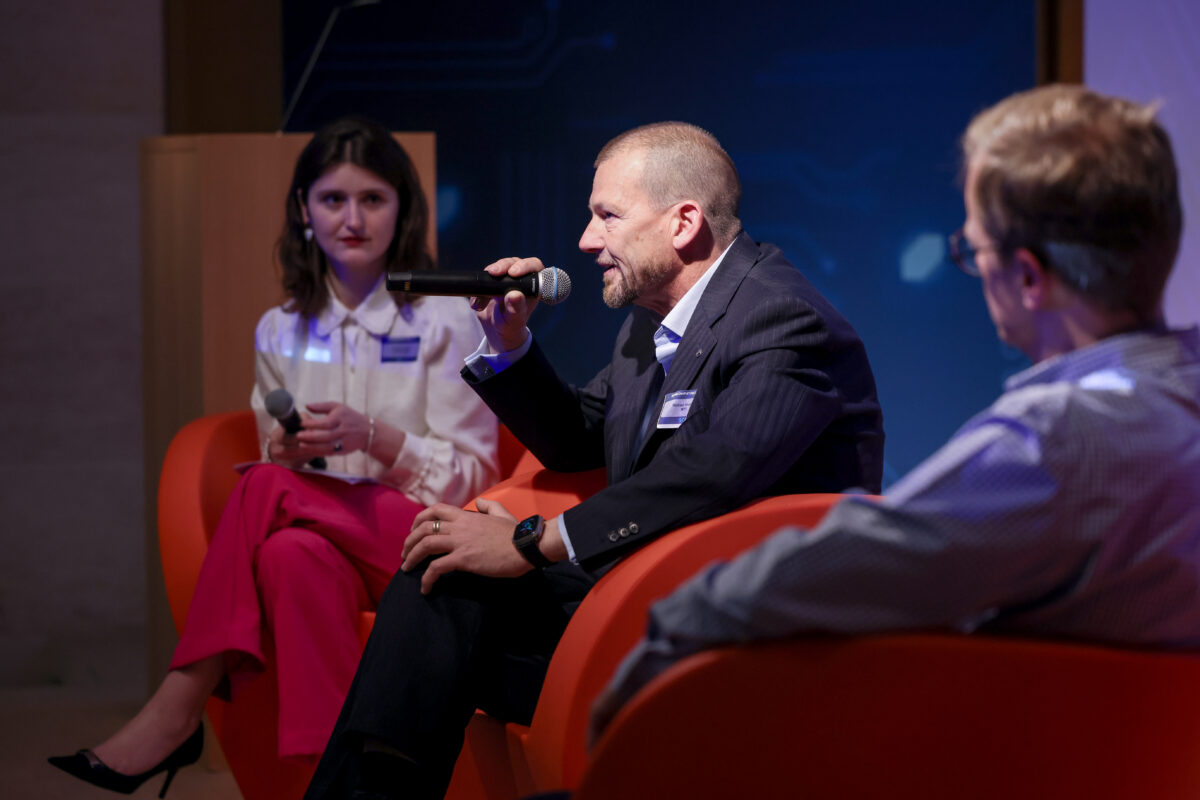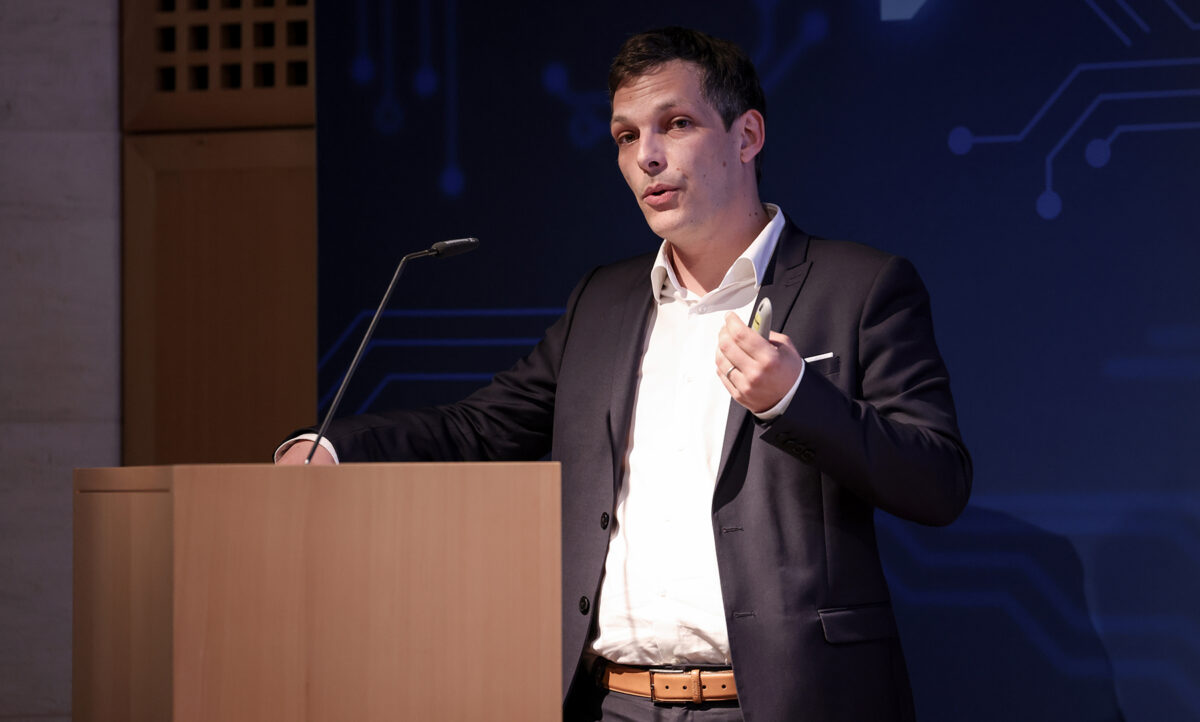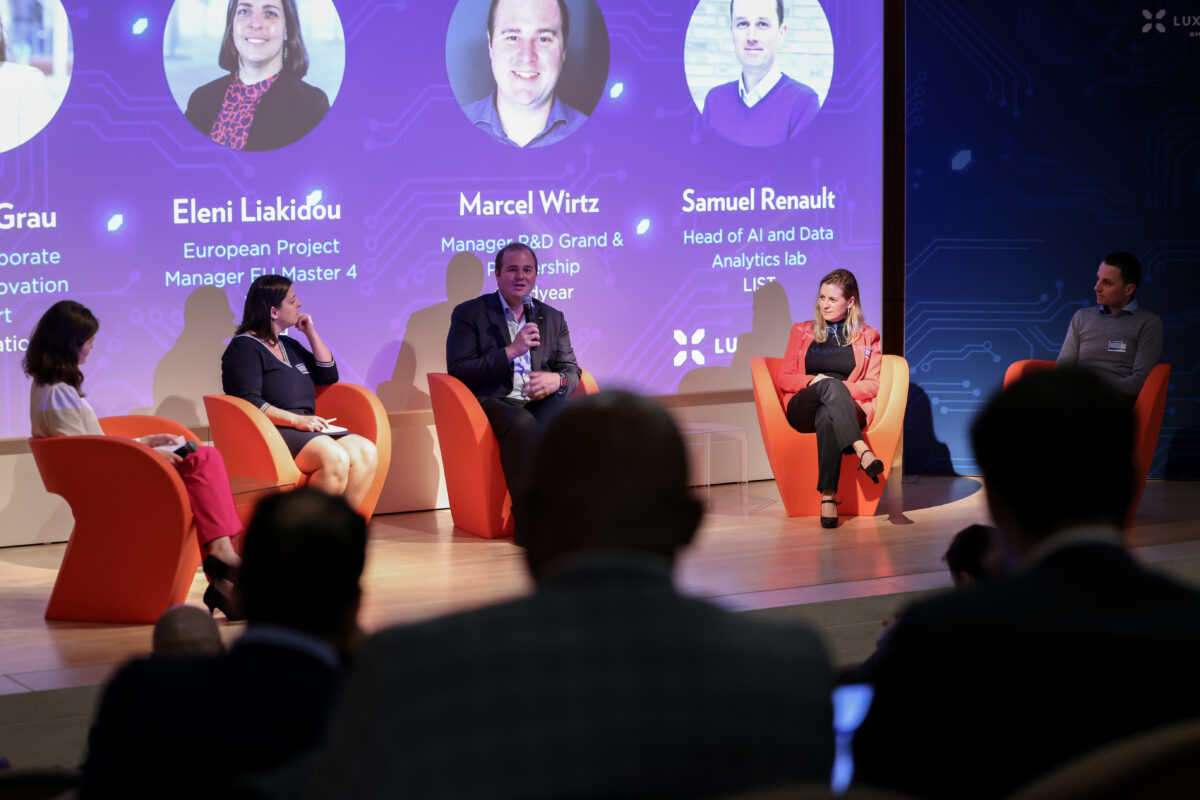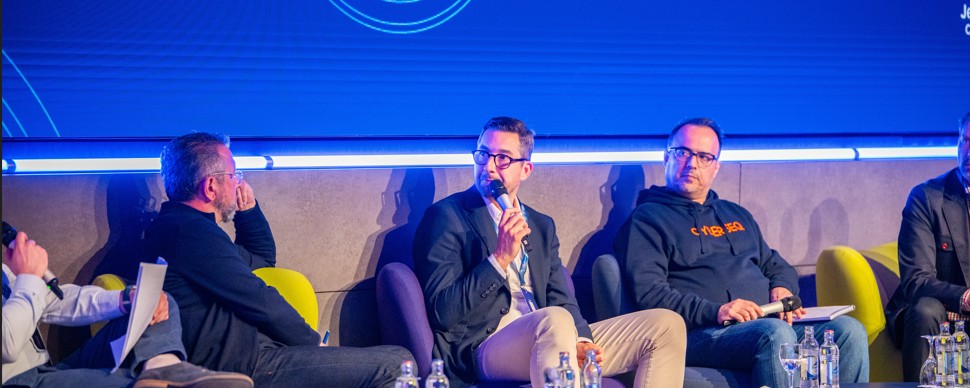The annual Luxembourg Supercomputing Day was conceived by Supercomputing Luxembourg, a collaboration between Luxinnovation, LuxProvide, and the University of Luxembourg.
“I don’t think that any company will be competitive in less than three years without a strategy for using their own data, which is the new fuel for your future and your traffic,” said Alban Rousset, Luxprovide Business Development Executive and Scientific Advisor, during the keynote speech.
The annual Luxembourg Supercomputing Day was conceived by Supercomputing Luxembourg, a collaboration between Luxinnovation, LuxProvide, and the University of Luxembourg, to help companies, researchers, and public bodies unleash the potential of data and develop innovative solutions using the power of supercomputing. This second edition, split between a research and business-oriented programme, saw over 160 registrations and a good turnout at the Mudam Museum on 4 May 2023.
The morning presentations covered everything from the existing European supercomputing ecosystem to the business applications of quantum computing to solve complex problems, as well as the leading role of HPC Centres of Excellence (COEs) to advance the use of supercomputing.
“In order to predict something, you must first understand it. You build a model for it and then consider what it means if some parameters change. How will it behave the next day or in 10 or 20 years? Technological intelligence can provide those answers,” explained George Gesek, Co-founder and CTO of quantum computing cloud QMware, urging industry players to explore HPC and hybrid quantum computing, especially for optimisation, simulation and machine learning purposes.
Easy access to high-ranking supercomputers
Josephine Wood, Senior Programme Officer at the European High Performance Computing Joint Undertaking (EuroHPC JU), underscored Europe’s progress in strengthening the supercomputing terrain, which now includes four petascale supercomputers and two pre-exascale computers. “In 2013, our objective was to get one system in the top 10 of the top 500 supercomputers. Since 2020, we’ve procured six supercomputers that are operational. Two are in the top 5 and Luxembourg’s supercomputer Meluxina is among the top 22 greenest computers,” highlighted Ms Wood, adding that the presence of supercomputers is only reinforced when companies, researchers and other users continuously engage with these systems and maximise the free access available.
European projects utilising MeluXina
Since it became operational in June 2021, 16 European projects have collaborated with Luxembourg’s national supercomputer MeluXina for their projects, the majority of which are in three fields of research: chemical sciences and materials, computational physics, and engineering. Ms Wood underlined that EuroHPC, which aims to make Europe a world leader in supercomputing, currently has 39 research and innovation projects in various member states, including the flagship European master programme in supercomputing led by the University of Luxembourg. Several other calls for HPC projects are open, such as the EU-Japan HPC collaboration call to facilitate the exchange of best practices among researchers from Japan and the EU.
Supercomputing: case studies by COEs
Applications of supercomputing across Europe were also presented during the Luxembourg Supercomputing Day. These include simulations carried out by HPC COEs to optimise the yield of large wind farms, and another case study by the Centre of Excellence Cheese to understand the dynamics of natural disasters through computing and to enable a swift reaction by public authorities.
“Computers are not enough without good software to make good use of these machines and solve problems with satisfactory accuracy. Many applications exist but are only useable by specialists; the purpose of COEs is to make HPC applications scalable to these systems and for it to be used by a broader audience,” explains Dr Guntram Berti representing software company Scapos.
Unlocking the value of data
CEO of the Luxembourg National Data Service, Bert Verdonck, explained that there is a growing desire for open data and a sizeable amount of data is already available under the data.public.lu initiative. “Data is needed to create better analysis, better simulations, better policymaking and better research,” he said, explaining that simulations can help to improve the accuracy of research projects. “In many cases, if you have realistic synthetic models of companies, objects, streets, buildings, a lot of research could already be started and trained on synthetic data. You could simulate noise and data quality issues, and maybe also run simulations on a supercomputer using a synthetic data set to optimise and improve the data research project.”
Mr Rousset affirmed that “supercomputing is the engine that will digest the fuel of innovation as it can add value to start-ups, SMEs, and large enterprises.” Although HPC is still largely unpacked in the business world, he adds that the first step for any company to take in order to be “supercomputing ready” is to develop a data strategy and improve its digitalisation efforts.
Use cases of supercomputing
A dedicated panel discussion in the afternoon explored supercomputing use cases. Three companies spoke on how they have used supercomputing capacities for their projects. For instance, using MeluXina, Luxembourg-based R&D company RSS-Hydro was able to execute complex and very effective flood simulations. “We were one of the lucky ones selected for the Fit 4 Start acceleration programme managed by Luxinnovation, specifically in the HPC category. I think that’s a prime example of where government programmes can help make that transition from conventional to supercomputing,” said CEO Guy Schumann.
Lukas Kriete, a business executive at German software company Kimoknow, underscored how deep learning on supercomputers has also helped the company’s AI-enabled object recognition implementation. Ms Wood highlighted during her presentation that a potential public-private partnership in the acquisition of future supercomputers could help drive engagement by the private sector.
The Supercomputing Day closed with a panel discussion on financial resources and partnerships that can be launched with leading research entities like the Luxembourg Institute of Science and Technology (LIST) and the University of Luxembourg to enable more supercomputing projects in Luxembourg. Barbara Grau, Head of Corporate R&D and Innovation Support at Luxinnovation, specified that there are available research and Innovation funding schemes that businesses can benefit from to advance their HPC projects.
“There are several state aid schemes available to foster computer-aided R&D and HPC projects, supporting companies at different maturity stage and skills level on this field. Classical bottom-up aid schemes, could be a feasibility study or external consulting for SMEs, with no fixed deadlines. Since 2022 there are recurring top-down joint calls in HPC to encourage collaboration between research bodies and private organisations. Companies can count on the support of Luxinnovation for their applications explained Ms Grau,” explained Ms Grau.
